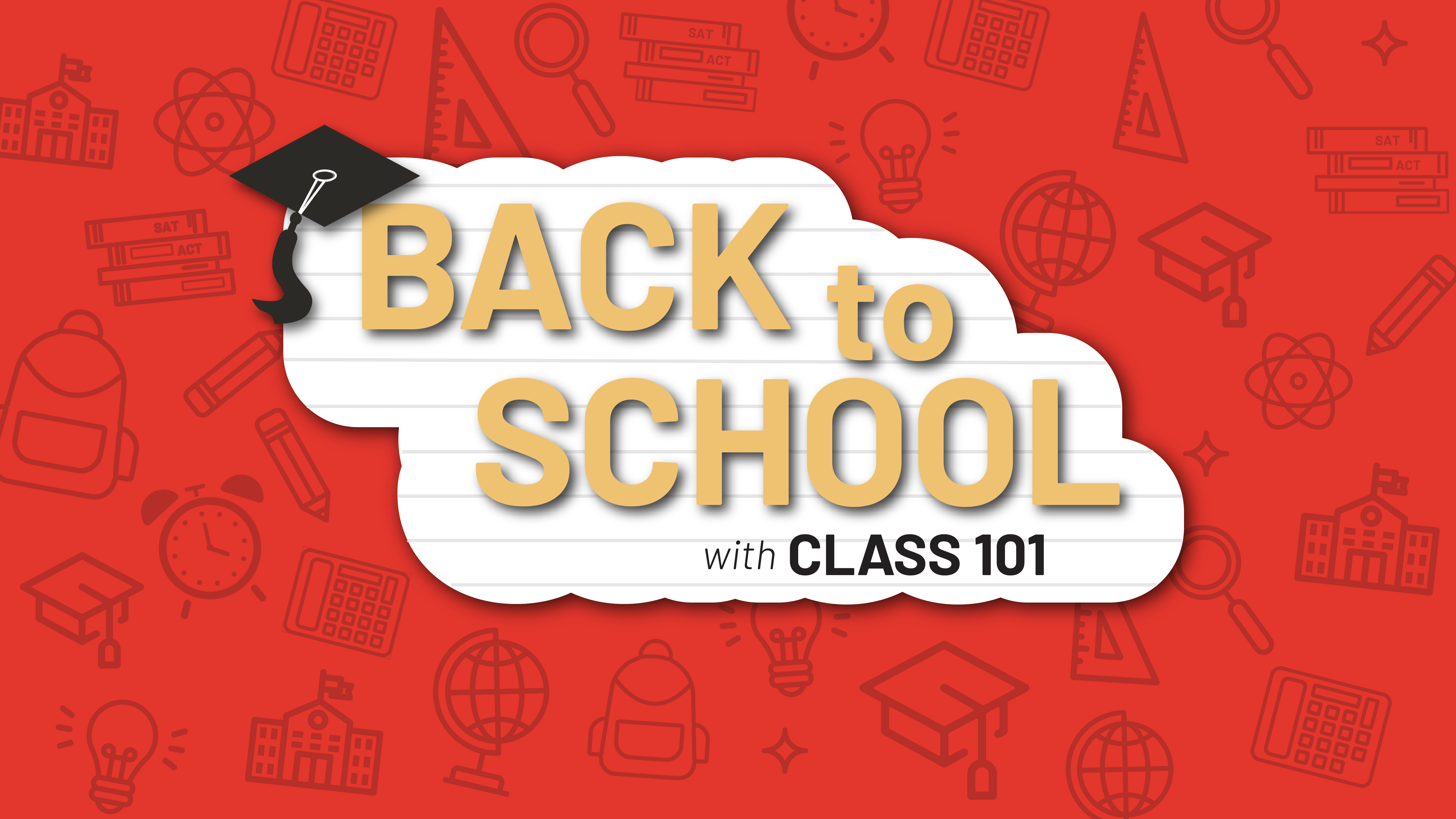August 1, 2023

Summer is coming to a close. For families across the country that means returning from vacation, buying new school supplies, getting ready for the new academic year, and starting to think about college.
This time is always a great opportunity for students to center themselves and think about the year to come. Class 101 knows just how students can set themselves on the right path for high school and beyond after the summer break. Based on our experiences with thousands of students across the country, here are six tips to help you on your journey this academic year.
If you would like to learn even more about how to succeed this school year, contact us today or find a Class 101 location near you where you can begin more in depth college planning with us.
Most schools across the country have counselors to help students through their four years of high school. A good counselor is someone who listens to a student and provides advice that can allow them to reach their full potential. They are meant to be a student’s advocate during their four years of high school.
Forming a relationship with a counselor can be a great way to get the personalized support you need. By checking in often, you can make sure they know who you are and what you want to achieve. As many colleges require students to seek a letter of recommendation from their counselors, regular check-ins can also make sure that your counselor can write a detailed, compelling letter about you.
Don’t be afraid to reach out! Much like your Class 101 advisor, counselors are there to support you!
Guidance counselors are one thing but students spend their time in the classroom with teachers learning the skills they need to succeed academically and professionally.
What many students forget is that teachers provide more than just what is offered in the classroom. While teachers can provide a lot in class (especially if the student is active and engaged), there are many opportunities to be found by reaching out before or after class. Teachers can help students with complicated material. They can also help students find ways to build on the basics provided by the school, identifying new and exciting opportunities.
And just like counselors, teachers can be a great source of letters of reference. Teachers who know a student and know they are trying hard to succeed can write compelling letters of recommendation.
Meeting with a guidance counselor and teachers is a great way to help you identify long-term goals but they can also be useful in helping you set short-term, semester-long goals. They can help you ask: What do I want to achieve over the next few months? Where do I want to be? How does this help me be successful?
The best semester goals are those that are specific and concrete. They do not need to be the most ambitious goals in the world (in fact, it is often better to start small), but they should help you work toward an overall objective.
Think about what your pathway for success is and what individual steps you need to take to reach it. Don’t be afraid to ask others for help. At Class 101, we’re here to help ensure your high school plans align with your college planning journey.
The next piece of advice is basic: Figure out your calendar.
Too many students go through the year by the seat of their pants, going from day to day and class to class without any sense of what will happen next month or next week. By figuring out important dates in advance, you can make sure you don’t miss valuable opportunities. You can be prepared when the time comes.
How you keep track of dates is up to each individual student. Some use online calendars connected with their emails while others use physical day planners. Still others might keep track of the month ahead on their wall or refrigerator.
Think about what works for you and which methods will be most effective in keeping you ahead of the curve.
Calendars can be great for identifying due dates for assignments, service opportunities, and community events but they can also be valuable in making you more aware of your habits and routines. Are you really getting the most out of your time before and after school or are you spending hours scrolling through social media? What is the best way to ensure you balance work and play?
Using your calendar and keeping in mind your own personality, think about what kind of approach to studies fits in best with your life. Perhaps you are the kind of student who needs to focus on homework for two hours the moment you get home before you are done. Perhaps you would benefit from the Pomodoro Technique where you break your workday in 25-minute chunks separated by five-minute breaks.
Again, do what works for you and don’t be afraid to experiment. Your study routine should complement your lifestyle. Your Class 101 college advisor may have a few tips themselves to help you study.
Finally, the best thing any student can do at the start of a new school year is get involved. Join clubs and sports teams. Meet new people. Get involved in the community.
By being active and engaged, you can demonstrate that you do more than the bare minimum and have real interests. You might also find new things that you enjoy that can lead you on new, exciting adventures through high school and beyond.
The end of summer doesn’t need to be the end of a student’s fun. To the contrary, the beginning of every new school year provides students with fun, new opportunities to become a better version of themselves. By planning ahead, especially with the support of a Class 101 college advisor, students can be successful in high school and position themselves for a strong college application in the future.
If this advice was interesting and helpful to you, our college advisors have many more tips to offer on how to succeed academically. You can get in touch with us today or find the location nearest you in order to start working with a Class 101 college advisor.

April 15, 2025
There’s roughly 10 weeks of summer vacation each year. It’s good to use that vacation to relax, to enjoy time with family and friends. However, this break can also be a time for other activities. It can be a chance to grow, to learn, to explore. It can be a chance to get ahead. One […]
Read More >
April 9, 2025
The Common App, the undergraduate college admission application whose platform is used by most colleges in the United States, is celebrating its 50th anniversary this year. With that milestone come changes big and small, to the application questions, the forms, and the process itself. In this blog, we’ll review a few of the changes that […]
Read More >
March 17, 2025
Getting accepted into college is a huge relief, a sign that your hard work has paid off and your accomplishments have been recognized. Most students will be accepted into more than one college or university. You may receive acceptances from three, four, five, or even more of the schools you applied to. Having choice is […]
Read More >